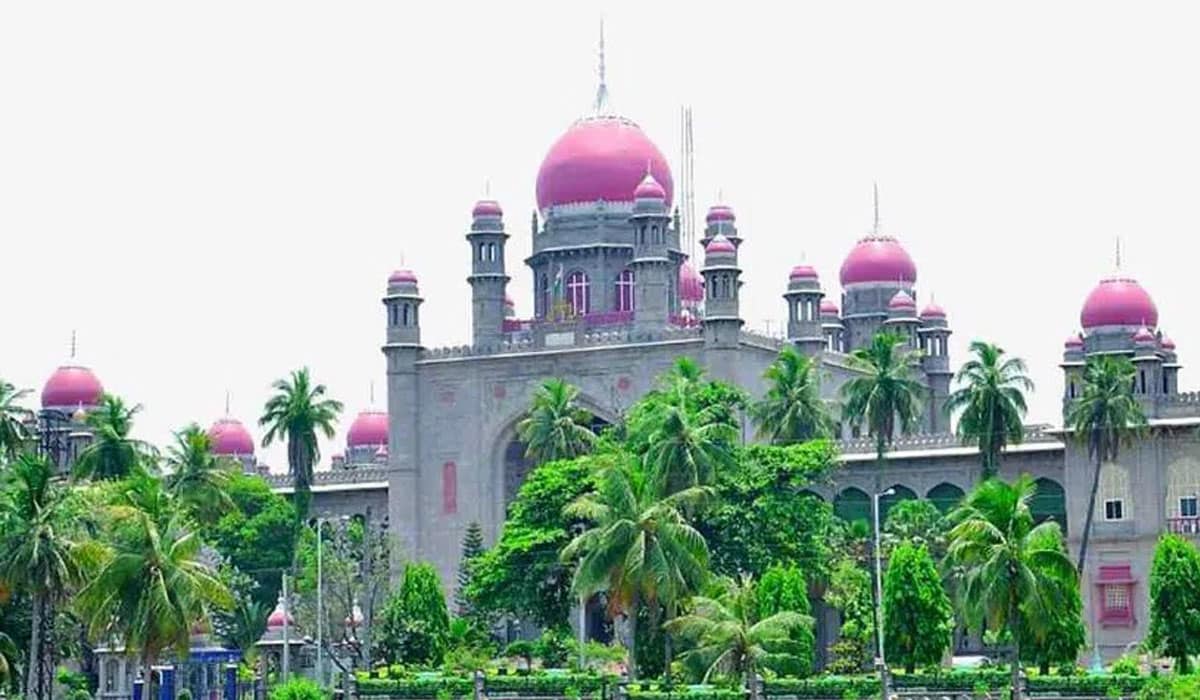Hyderabad: In a recent ruling, the Telangana High Court dismissed a petition filed by Bharat Rashtra Samithi (BRS) leader Errolla Srinivas, who sought a First Information Report (FIR) against Chief Minister Revanth Reddy. Srinivas alleged that Reddy made derogatory remarks against BRS leaders, including K. Chandrasekhar Rao, during a public rally in Palamuru on March 6, 2024.
Telangana High Court Dismisses BRS Leader Errolla Srinivas: Case Background
The petitioner, Errolla Srinivas, filed a complaint with the Banjara Hills police, urging them to register an FIR against the Chief Minister. He accused Reddy of using offensive language targeting the BRS leadership, potentially inciting violence and disrupting public order. Srinivas contended that Reddy’s statements could provoke unrest and should therefore be addressed legally.
However, Justice B. Vijaysen Reddy of the Telangana High Court reviewed the petition and determined that it was “not maintainable,” citing that the petitioner lacked locus standi (the right to bring the case). Justice Vijaysen Reddy reasoned that public officials like the Chief Minister often make statements on issues of public interest, and while these might occasionally be contentious, they do not inherently constitute grounds for criminal prosecution. Consequently, the High Court dismissed the case.
Court’s Perspective on Freedom of Speech and Political Statements
Justice Vijaysen Reddy’s decision reflects the importance of freedom of speech within the political sphere. His ruling emphasized that leaders often express strong opinions, which may include criticism of opponents. This does not automatically qualify as a criminal act. Political discourse, particularly in democratic contexts, often includes sharp critiques and pointed remarks, and prosecuting these could hinder open discussion.
Key Points of Justice Vijaysen’s Verdict:
- No Locus Standi: The court noted that Errolla Srinivas lacked sufficient standing to pursue the complaint.
- Public Official Privilege: Justice Vijaysen observed that, as a public figure, the Chief Minister’s speech warrants different considerations than private individuals’ remarks.
- No Automatic Grounds for FIR: The court determined that Reddy’s speech, even if deemed controversial, did not automatically justify an FIR.
Implications of the Dismissal
The High Court’s ruling sends a strong message about the boundaries of political speech and legal intervention. By Telangana High Court Dismisses BRS Leader Errolla Srinivas, the court signaled its reluctance to engage in cases where political comments are the central complaint, thus emphasizing the protection of free speech and ensuring that political rivalries do not translate into unnecessary legal actions.
The ruling also reflects an understanding of the political landscape in Telangana, where rhetoric often runs high, especially in the run-up to elections. Critics and supporters alike have weighed in on the decision, with some applauding the court’s commitment to free expression and others expressing concerns about unchecked speech by high-ranking officials.
Another Major Development: Telangana’s Ongoing Caste Survey
In a separate matter, Justice S. Nanda of the Telangana High Court is handling a petition concerning the ongoing caste survey in the state. This issue is of significant public interest, as it pertains to individuals who identify as having “No Religion” or “No Caste.”
Details of the Caste Survey Case:
Two petitioners, Mohammad Waheed, President of the Kula Nirmulana Sangham (KNS), and another individual, have raised concerns that the state’s caste survey, known as the Samagra Intinti Kutumba Survey, lacks an option for people who identify as “No Religion” (NR) or “No Caste.” They argued that by omitting a distinct column for these individuals, the survey misrepresents their identities and places them under a broad “Other Religions” category, thus infringing on their constitutional rights.
- Petitioners’ Argument: The petitioners contended that this oversight fails to account for the rights of individuals who do not identify with any religion or caste. They argue that the lack of representation violates fundamental rights guaranteed under the Indian Constitution, including freedom of religion and identity.
- Justice Nanda’s Interim Directions: Acknowledging the importance of the matter, Justice Nanda directed state authorities to urgently address the petitioners’ concerns. The court asked the authorities to consider the petitioners’ representation for a “No Religion, No Caste” column and make a decision in accordance with existing laws.
Public Response and Constitutional Implications
The petition in the caste survey case underscores the growing trend of individuals choosing not to affiliate with any religion or caste, particularly in urban centers. This trend reflects broader societal changes and has implications for how government data collection respects personal identity choices.
Key Points of the Petitioners’ Demand:
- Accurate Representation: The petitioners are seeking acknowledgment of the right to identify as “No Religion” and “No Caste,” ensuring accurate representation in government records.
- Fundamental Rights Argument: They assert that being grouped under “Other Religions” is a violation of their rights, as it misrepresents their personal beliefs.
The Court’s Role in Upholding Fundamental Rights
Justice Nanda’s order is a reminder of the judiciary’s responsibility to protect individual rights and ensure inclusivity in government policies. The court has scheduled further hearings to delve deeper into the implications of the caste survey’s current structure.
Conclusion
The Telangana High Court’s recent rulings reflect its commitment to maintaining free speech, representation, and individual rights. Both cases bring attention to essential issues surrounding political discourse and identity in India’s social fabric. While Justice Vijaysen Reddy’s dismissal of Errolla Srinivas’ petition underscores the importance of free expression, Justice Nanda’s directive on the caste survey case advocates for inclusivity and accurate representation in state policies.
As these cases progress, they will likely continue shaping the public discourse on political accountability and individual rights in Telangana.
Image Caption: Telangana High Court at Hyderabad, focusing on key cases around free speech and caste identification.
